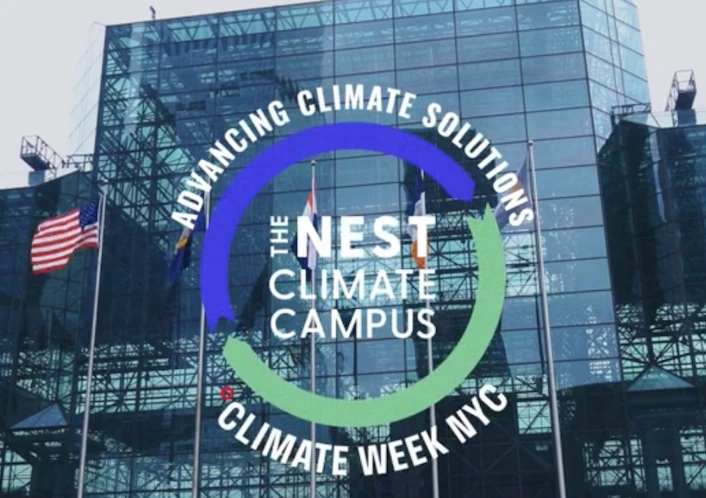(To see our photos and videos, check out our Instagram and LinkedIn).
When Climate Week NYC unfolds each September, the Javits Center turns into a festival of ideas, deals, and theatrical proof that big, messy problems can attract big, inventive responses. Nestled under a massive green roof at the Javits, The Nest Climate Campus aims to be the beating heart of that action — a three-day hub (September 23–25, 2025) where policymakers, investors, NGOs and companies collide, collaborate, and occasionally compromise.
Think of The Nest as a climate mall for movers: a main stage with headline speakers, dozens of co-hosted sessions, media studios, hands-on exhibits and a rooftop-green food hall where networking happens over compostable cutlery and rooftop-grown greens. The Campus bills itself as the largest U.S. climate event co-located with Climate Week NYC and — after several years of growth — aims to reduce travel impacts by concentrating events under one “green roof.”
Why The Nest matters (quick numbers)
The Nest isn’t just a stage: it’s audience aggregation in action. In 2024 the Campus hosted over 9,400 climate leaders representing thousands of organizations — a useful indicator of its scale, reach and influence heading into 2025. If Climate Week is the global conversation, The Nest is one of its loudspeakers.
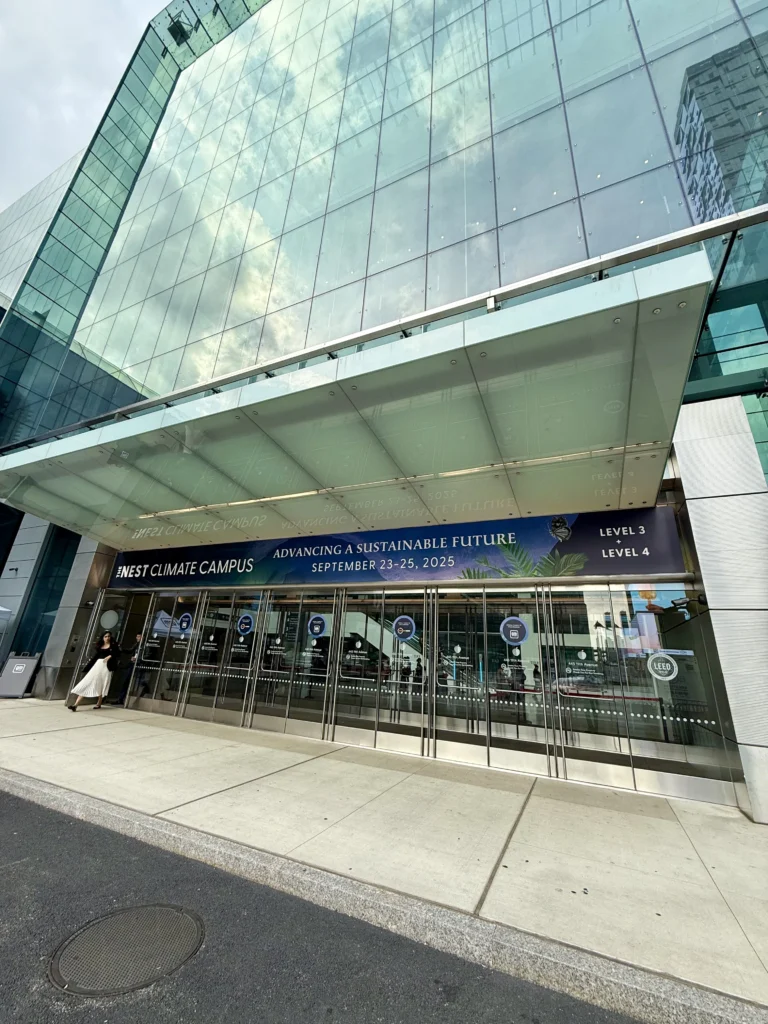
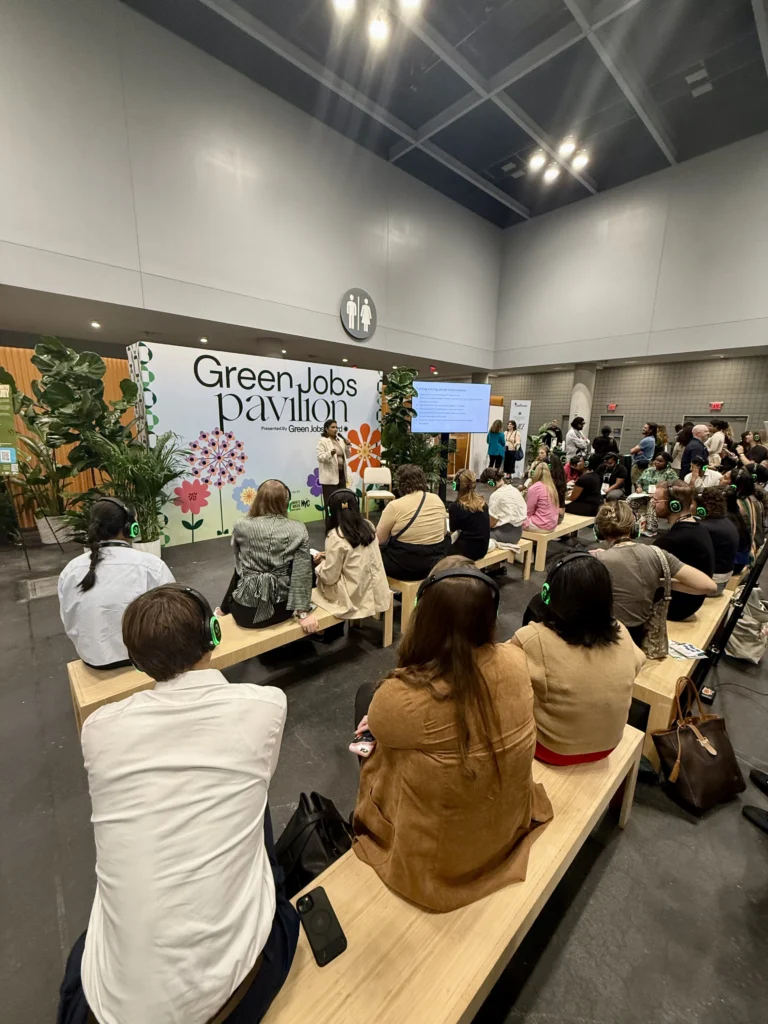

L’Oréal at The Nest: scaling beauty’s climate ambition
On the Main Stage program this year, L’Oréal took a prime slot — a clear signal that the beauty industry now shows up at high-level climate moments not with marketing copy, but with investment announcements.
The session, “Scaling Beauty’s Climate Impact: L’Oréal’s Call for Game-Changing Innovation”, featured Ezgi Barcenas, L’Oréal Groupe’s Chief Corporate Responsibility Officer, unveiling the company’s plan to invest €100 million over five years through a newly launched Sustainable Innovation Accelerator.
That €100M figure — and the plan behind it — is not PR theater. Official materials describe a structured accelerator program (up to 12 months per cohort), delivered with the Cambridge Institute for Sustainability Leadership (CISL), focused on ready-to-pilot innovations in low-carbon processes, alternative ingredients, water resilience, nature-positive solutions, and eliminating fossil plastic. In short: L’Oréal is trying to buy its way into practical solutions it can scale across supply chains.
What the accelerator actually promises
- Funding pool: €100M over five years for pilots, demonstrations and scale-ups.
- Program design: tailored 12-month accelerators with mentorship, peer learning, and pilot opportunities.
- Priority areas: climate-smart tech, water resilience, alternative bio-based ingredients, circular packaging, and nature-positive solutions.
This positions L’Oréal not just as an investor but as a system integrator: scouting the tech, piloting it in a massive value chain, and scaling it across the sector.
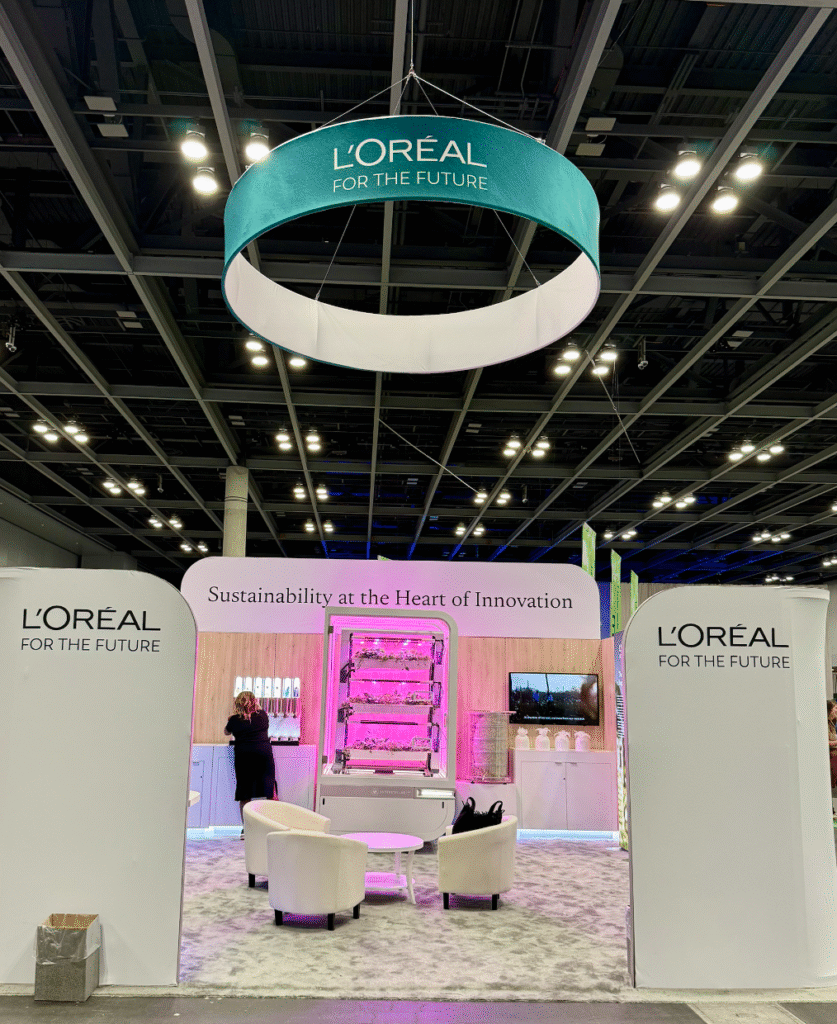
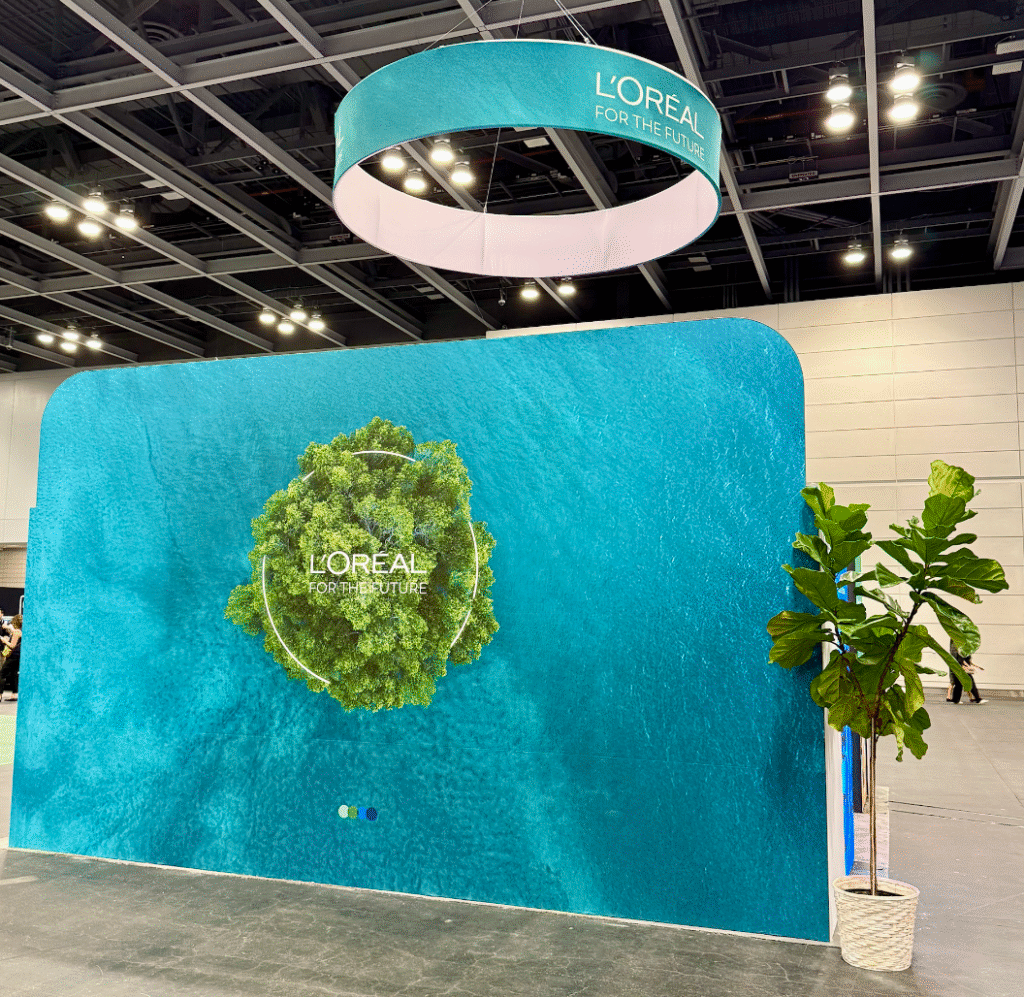
The panel: who shared the stage
Your screenshot confirms the lineup, adding more context to the announcement:
- Adam Jones, VP of Business Development, L’Oréal Research & Innovation North America
- Ana Kljuic, PhD, VP, L’Oréal for the Future and Green Sciences
- Barbara Belvisi, Founder & CEO, Interstellar Lab
- Tony Martens, Co-Founder, Plantible
- Shyla Raghav, Chief Climate Officer, TIME
This mix reinforced three things:
- L’Oréal’s R&D leadership (Jones and Kljuic) ensures science drives the accelerator.
- Startups (Belvisi and Martens) embody the disruptive edge that corporates want to harness.
- Media & accountability (Raghav) highlight the importance of transparency and narrative in climate action.
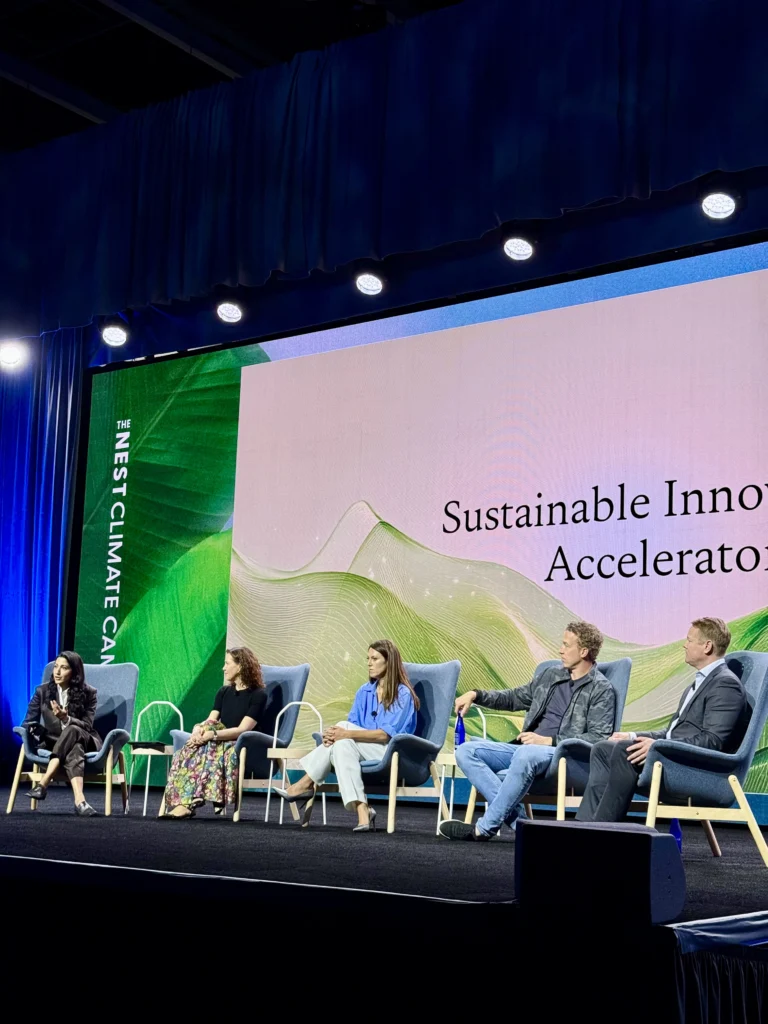
Why this matters beyond beauty
You could dismiss it as corporate PR — but the signals suggest otherwise. A major FMCG giant is mobilizing real capital and credible institutional partners to close the innovation gap between climate tech and industry adoption.
If L’Oréal successfully pilots water-resilient manufacturing, polymer substitutes for packaging, or low-carbon ingredient systems, those solutions scale into millions of products and consumers — creating systemic change.
The on-stage narrative: from commitment to activation
The Nest framed L’Oréal’s move as the next step in its L’Oréal for the Future strategy, with 2030 targets on renewables, circular packaging, Scope 1–3 reductions, and water recycling. By tying a venture-style accelerator directly to corporate pilots, L’Oréal signaled a pivot from targets to toolbox: actual technologies and partnerships to deliver results.
What the accelerator could unlock
- Emissions cuts through low-carbon production and sourcing
- Material circularity with plastic-free or recycled packaging
- Water resilience with new reuse and efficiency technologies
- Sector spillover as solutions proven at L’Oréal scale become industry norms
A reality check
Big corporate accelerators can deliver impact — but only if they measure and publish results. The key questions:
- Will pilots be independently vetted?
- Will outcomes (CO₂ cuts, water savings) be reported transparently?
- How fast can solutions move into supply chains?
- How many pilots will scale by 2030?
Scenes from The Nest
True to form, The Nest wrapped these announcements in an atmosphere of innovation and culture: high-profile keynotes, interactive exhibits, rooftop gardens, and plant-based food. It’s half summit, half showcase — exactly the blend that turns corporate commitments into public dialogue.
Bottom line
The Nest Climate Campus turned L’Oréal’s €100M accelerator into more than a press release: a public commitment, framed by scientists, entrepreneurs, and media voices.
If the accelerator succeeds, it could yield measurable reductions in emissions, plastics, and water use — a rare case of corporate investment with industrial-scale impact. If not, it will still function as a learning lab — and that too is part of The Nest’s purpose.
At Climate Week NYC 2025, beauty stopped just selling dreams — and started scaling solutions.
Follow the links: The Nest Climate Campus.

